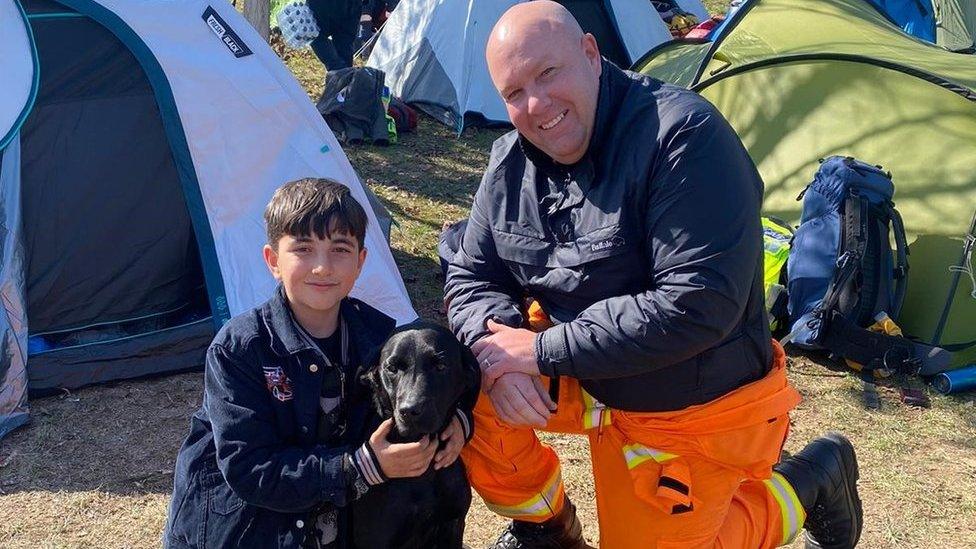Turkey-Syria earthquake: NI medic helping new mums in quake zone
- Published
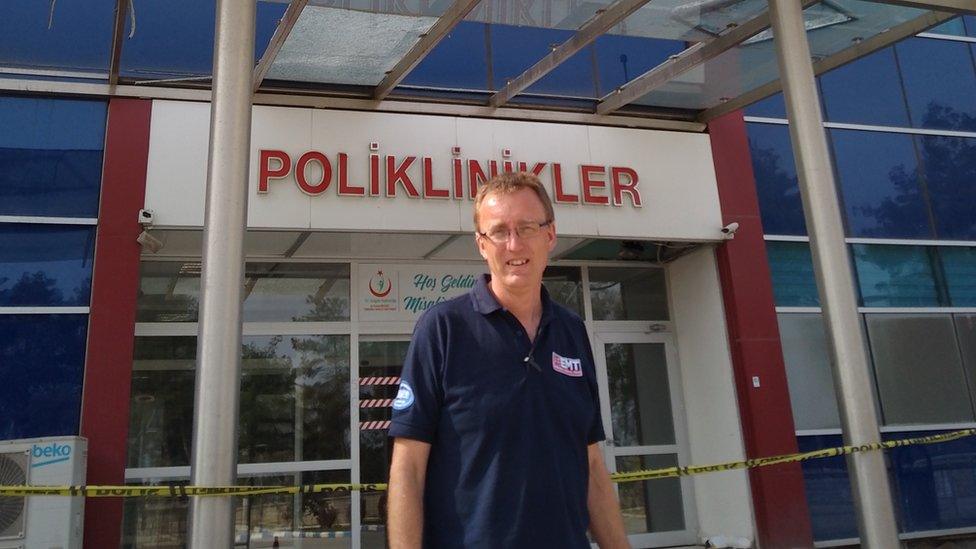
Obstetrician Paul Holmes is working in the grounds of a disused hospital which was damaged by the quake
A medic from Northern Ireland has spoken of his "nerve-wracking" time in the Turkish earthquake zone, treating pregnant women caught up in the disaster.
Obstetrician Paul Holmes, who is originally from Ballymena, County Antrim, spent the past three weeks working in a field hospital in southern Turkey.
"I've come across mums who have literally been pulled out of the rubble," he said.
"Carrying a baby is obviously worrying for any mother at the best of times, let alone when you have survived an earthquake on this scale and in many cases have been left totally homeless and sleeping in a tent."
Mr Holmes also experienced two "fairly major" aftershocks during his deployment, the first of which caused an electrical fire in the grounds of a damaged hospital building where he is based.
More than 50,000 people were killed when earthquakes hit Turkey and Syria 6 February and thousands more are now missing, injured or homeless as a result.
Mr Holmes arrived in Turkey on 11 February as part of a UK-Emergency Medical Team deployed by the British government through the Foreign, Commonwealth and Development Office (FCDO).
He helped set up a tented field hospital in Türkoğlu, in the car park of a hospital that is no longer safe because it was destabilised by the earthquake.
"The hospital was still standing, but some of the internal floors and ceilings had fallen down and it was very much not usable," he explained.
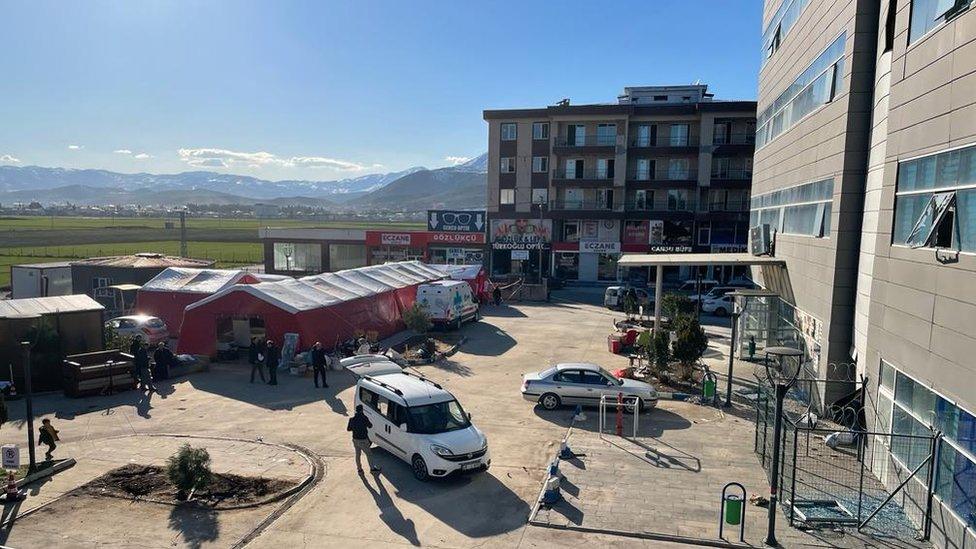
Members of the UK Emergency Medical Team constructed a tented field clinic next to the hospital
He worked alongside Turkish medics at the joint Ministry of Defence-FCDO field hospital and spent his nights sleeping in a tent in sub-zero temperatures.
'Ice inside tents'
Many of the women he has treated were not physically badly injured but were among the quake survivors suffering trauma, hardship and extreme temperatures as their homes were destroyed.
"Kids are coming in with lots of respiratory infections and illnesses, partly from living in tents in temperatures of minus seven or eight at night. I know the tents we are camping in have had ice on the inside some mornings never mind on the outside," Mr Holmes explained.
He added many traumatised pregnant women were very stressed about their unborn children and his team helped to replace some of the services lost when the hospital was damaged.
"It's been very, very rewarding to be able to see the relief on their faces as I've been able to show them their babies on an ultrasound scan and let them listen to the baby's heartbeat, and just to be able to reassure them that the baby is doing very well."
'Grateful'
Mr Holmes grew up in Northern Ireland but moved to Scotland to study medicine when he was 18.
Now 56, he usually works at the Forth Valley Royal Hospital in Stirlingshire, but also volunteers with frontline medical aid charity UK-Med.
According to the FCDO, UK aid money pays for EMT staffs' regular roles "to be backfilled to ensure the NHS is not impacted".
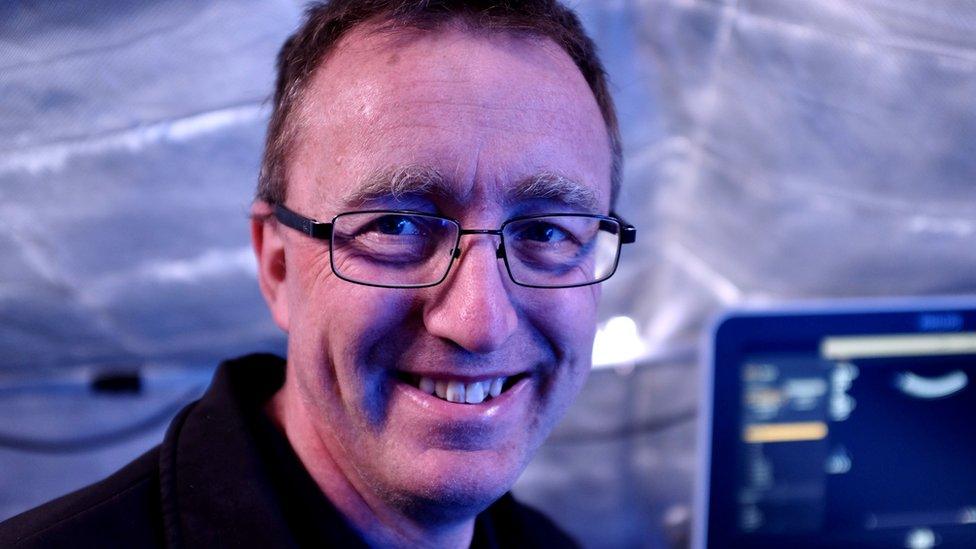
Paul Holmes is a married father of four originally from Ballynahinch, County Down
"It is a privilege to be part of the UK government's humanitarian response," Mr Holmes said.
"It's been amazing how grateful Turkish people have been for our help, partly for the medical or healthcare assistance we've been giving, but also I think they've really appreciated the expression of solidarity that the UK team coming over has meant to them."
Mr Holmes said he was touched by the Turkish generosity of spirit, despite their loss and suffering.
He recalled that when his team apologised to patients because they had not been able to shower for a week at their camp, one patient invited them home so they could use their bathroom facilities.
Another woman collected walnuts for her garden and brought them to the aid workers.
It is not the first time Mr Holmes has been deployed to an earthquake zone to deliver medical aid, but it is the first time he has experienced powerful and dangerous aftershocks.
"The first one briefly set the hospital building on fire, which was slightly nerve-wracking. I saw smoke after it triggered an electrical fire but thankfully it was brought under control very quickly and there wasn't huge damage.
"We had to move our overnight camping tents because they were deemed a bit close to the hospital," he recalled.
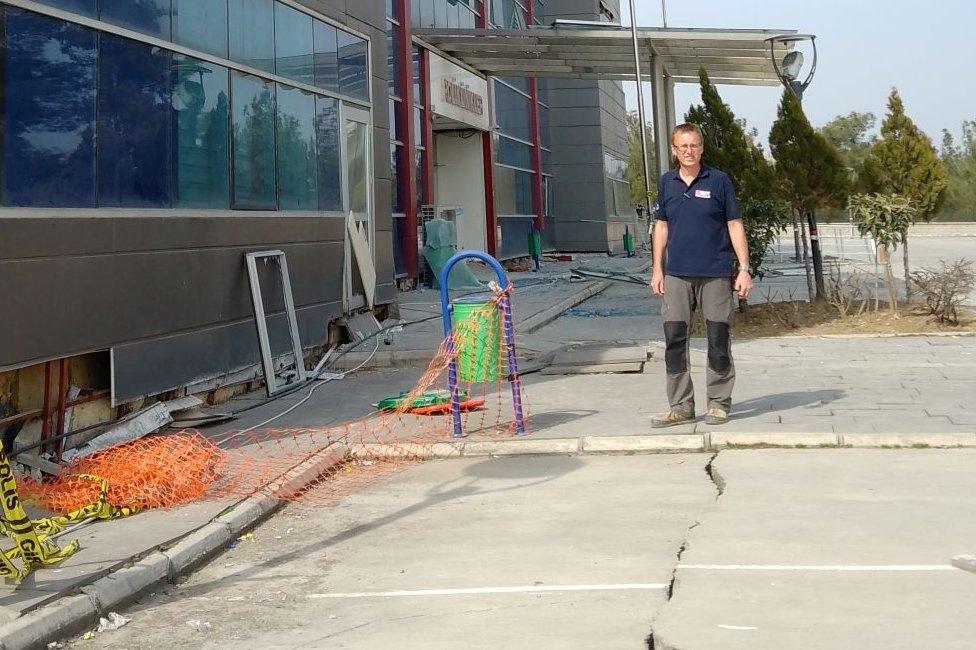
The ground outside the hospital cracked with the force of the quake
"The other big aftershock happened in the evening time when we were standing around chatting.
"It's not enough to knock you off your feet but the closest thing I can compare it to is when you are on a boat in choppy seas. You are not being thrown from side to side, but if you were trying to walk, you'd be unstable."
Mr Holmes said the situation was "obviously worrying" but added he was able to stay in contact with his wife and four children every day by phone to reassure them that he was OK.
'Brave'
He is due to return home to the UK on Saturday.
Last month, a search and rescue team from Northern Ireland returned home from Turkey after helping to rescue a woman who had been trapped in a collapsed building for nine days.
"The UK government is proud that brave firefighters and medics from Northern Ireland have been at the very heart of our efforts to help the Turkish people in their hour of need," said UK Minister for Development Andrew Mitchell.
"The UK government's priority now is to ensure that humanitarian assistance reaches the thousands of families left homeless by the earthquake. It will be so vital in ensuring those affected can begin to rebuild their lives."
Related topics
- Published16 February 2023
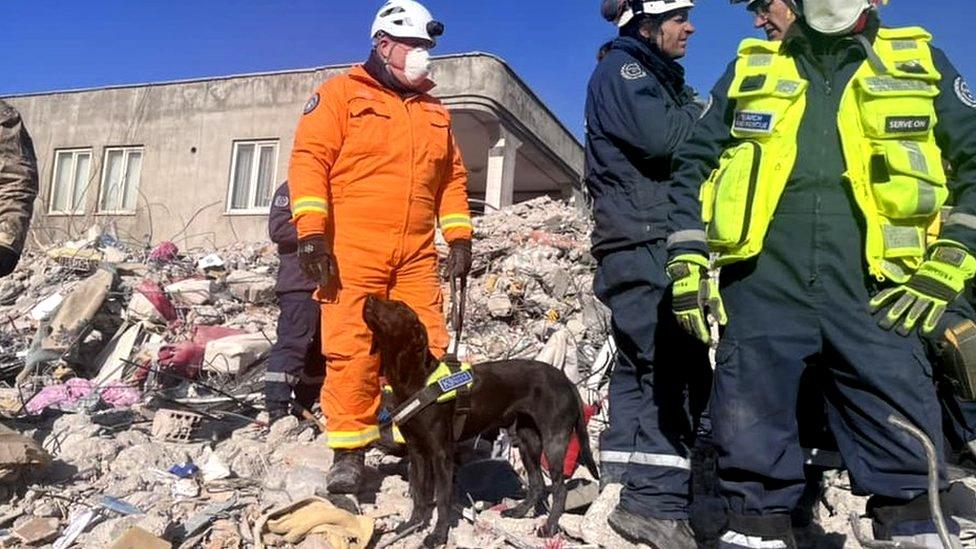
- Published12 February 2023
